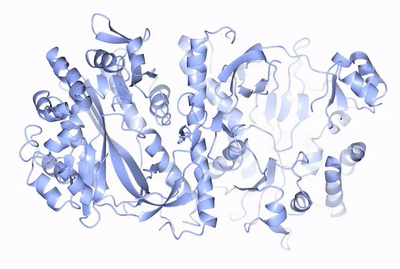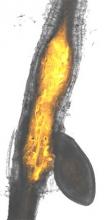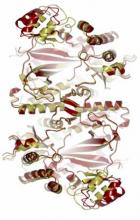Plant-parasitic nematodes are a major, and in some cases a dominant, threat to food security around the world. A finely tuned molecular dialogue between the plant and animal kingdoms, in this case, gives rise to the pathology and ultimately the crop losses. Our group aims to understand the nature of this dialogue in sufficient detail to identify sustainable routes to control. The group tackles this question largely from a genetic and molecular perspective: defining the genes involved in the inter-kingdom communication between plants and their parasitic nematodes.
The group is proudly international, diverse, and welcoming. We are always open to sharing ideas and resources to address interesting questions. Several past/present members of the lab held or hold international fellowships and studentships, and we support applications at all career stages. The lab is currently funded by the Biology and Biotechnology Research Council (BBSRC), the Leverhulme Trust, The Rank fund, and the European Union Horizon 2020 programme (ERC).
If you are interested in joining the lab as a under/post-graduate student or post doctoral research fellow, please get in contact for informal discussions and further details. We are particularly keen to support Marie Curie/EMBO/Discovery fellows.
Research Areas:
The 'readers' and the 'regulators'
What distinguishes plant-parasitic nematodes from many other plant pathogens is the presence of specialised gland cells that produce effectors. Discrete subsets of the effector repertoire are delivered into the plant in waves, over the course of several weeks. This project aims to understand this spatio-temporally controlled "parasitism programme": how the parasitism process is regulated over time, in the nematode and in the plant. We anticipate a small number of regulators that control the concerted action of a large number of effectors – if we can disrupt the few regulators, we can simultaneously disrupt hundreds of effectors.
We discovered the "DOG box": a promoter motif that unifies hundreds of otherwise sequence-unrelated effectors that are expressed in the same gland cell. The DOG box is our first insight into the regulation of the parasitic process. The fact that a single DNA motif unifies these effectors, implies the existence of a 'reader' and/or 'regulator': likely a protein, or protein complex, which coordinates tissue specific-expression through sequence-specific binding to the DOG box. Work in this area aims to characterise this and other 'readers' and 'regulators' of parasitism.
Discovering nematode effectors
Plant-parasitic nematodes have the remarkable abilities to suppress plant-immunity, and to cause existing plant cells to re-differentiate into a novel tissue. The extent of host-plant manipulation is rapid and profound: the cell cycle is arrested at G2, and the number and/or size of almost every sub-cellular organelle is drastically increased (Nuclei, endoplasmic reticulum, mitochondria, and plastids).
We have identified a comprehensive list of one of the 'toolboxes' that cyst nematodes use to manipulate their host. It is thus likely that within this effector repertoire lie genes that can dictate the outcomes of plant organelle development. This project aims to understand the targets and molecular detail of such effectors.
Plant-parasitic nematode genomes and transcriptomes
We have sequenced genomes and or transcriptomes for nematode species that straddle almost every major phylogenetic bifurcation that gave rise to the sedentary endoparasites: the most economically important species. Most notably this includes the completion of the Globodera rostochiensis genome consortium and the Heterodera schachtii genome consortium. Each new genome project reveals remarkable underlying biology, and furthers our interest in additional species.
Transformation of the global study of plant-parasitic nematodes
Our lab leads the transformation of plant-parasitic nematodes consortium with the goal of coordinating efforts from groups around the world to deliver credible strategies for subsequent development; ultimately leading to a robust transformation method. A major success of the consortium was to demonstrate the first over expression experiment of any kind in any plant-parasitic nematode using “Covid19 vaccine-like technology” (mRNA encapsulated in liposomes). We are always interested in discussing and testing ideas to make transformation for plant-parasitic nematodes a reality.
Head of Group Professor Sebastian Eves-van den Akker discusses his research during the Gatsby Plant Sciences Education Programme Summer School in Cambridge in 2023.





